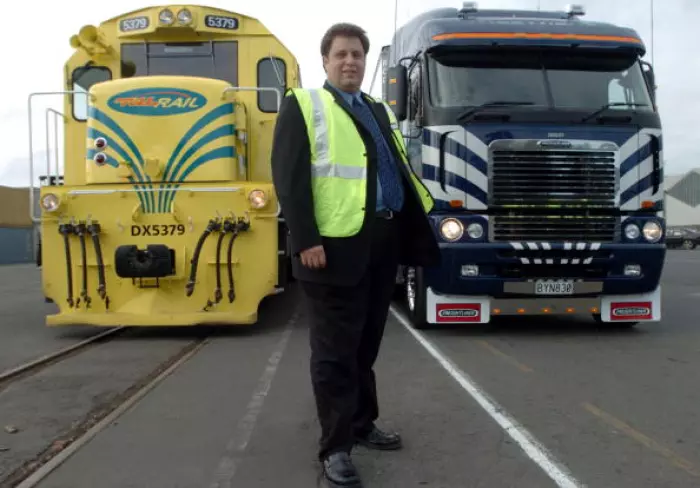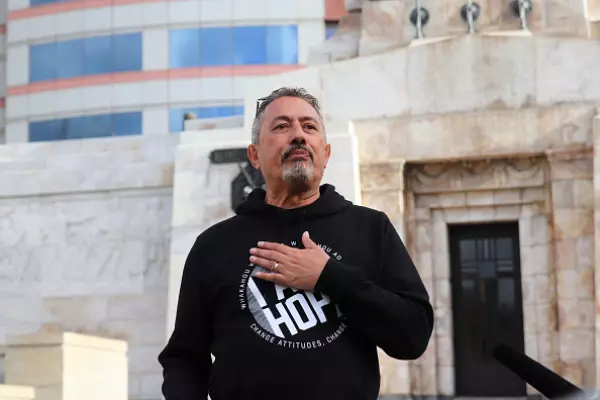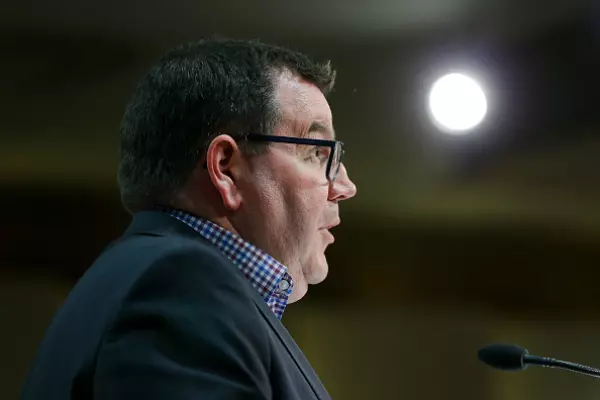Despite knowledge of workplace issues at KiwiRail, ministers still haven’t appointed a new board chair more than six months after the death of the previous chair, Brian Corban.
Unlikely allies the Rail and Maritime Transport Union (RMTU) and the National party have both slammed the lack of intervention, particularly considering the huge amounts of public money going into the state-owned rail operator.
This week, BusinessDesk revealed the KiwiRail board had appointed an external investigator, Kevin McMahon, to conduct exit interviews with 20 departed or departing senior managers who have left the organisation since 2019, when Greg Miller was appointed chief executive.
Several former and current KiwiRail staff have raised concerns about Miller, alleging a "command and control" leadership style. These concerns have been flagged to ministers, according to multiple sources.
Sue McCormack, the acting KiwiRail board chair, has publicly supported Miller.
McCormack has chaired the board in an acting capacity since May 2, after the former chair, Corban, died. Six months on, shareholding ministers Grant Robertson and David Clark have yet to appoint a replacement.
RMTU general secretary Wayne Butson accused the government of being “idle”.
It was “woeful”, he said, that ministers hadn’t appointed a new chair given the amount of public money going into KiwiRail and its importance to the transport network.
The government pumped a further $1.3 billion into rail in Budget 2021, building on earlier investments as well as hundreds of millions for the Interislander ferry replacement project.
Mark Mitchell, National’s state-owned enterprise (SOE) spokesman, was similarly scathing.
Using the Official Information Act (OIA), Mitchell had asked for internal KiwiRail correspondence at an executive level or higher raising concerns about Miller or the board.
KiwiRail confirmed there had been correspondence between executives and its general counsel. Because it was legal advice, it refused to release the information.
However, Mitchell said the existence of the correspondence appeared to show there were concerns. The government had taken too long to appoint a new chair, he said.
“The dragging of the chain by the government to appoint a chair is no longer acceptable.”
Minister defers to process
BusinessDesk put questions to Clark, the SOE minister, about the delay in appointing a new KiwiRail board chair. His press secretary said it would be inappropriate for the minister to comment as the appointment process was under active consideration.
In a statement, Clark said the KiwiRail board had told him about the exit interviews.
“It is my expectation that any SOE is operating as an upstanding employer,” he said.
However, Clark's office is not adopting stronger language relating to expectations of senior executive behaviour that BusinessDesk understands has been recommended by the prime minister's office.
BusinessDesk understands Treasury officials are aware of concerns about the relationship between Miller and the board and have a desire for stronger governance.
In a statement provided to BusinessDesk, McCormack said: “As deputy chair when chair Brian Corban became unwell and subsequently died, I had no hesitation in taking on the role of acting chair. I have not sought the permanent role and look forward to working alongside a new chair in due course.”
In regards to staff claims the board wasn't sufficiently independent, she said: "I reject any such allegations."
Miller and the board
Miller, an experienced transport and logistics professional, was appointed KiwiRail board chair in November 2018.
Inquiries by BusinessDesk have established that his appointment was effectively a condition of the coalition agreement between Labour and New Zealand First after the 2017 election.
NZ First pushed for Miller's appointment as executive chairman – making him both chair and chief executive – but a rearguard action by Labour ministers and Treasury officials who deeply opposed that outcome saw Miller appointed to the chairmanship only.
Shortly after Miller's chairmanship was announced, the KiwiRail chief executive at the time, Peter Reidy, announced he was leaving to go to Fletcher Construction, triggering a search for a new chief executive.
In March 2019, Corban, then deputy board chair, wrote to KiwiRail’s shareholding ministers saying the board supported Miller becoming managing director – effectively a rerun of the earlier attempt to make Miller executive chair.
One board member, Mike Pohio, opposed the suggestion. As did Treasury, which briefed ministers again that such a confusion of governance and management roles was inappropriate.
“Our view is that independence between governance and management is critical for accountability.”
In the end, Miller had to resign as chair to become chief executive.
However, several current and former KiwiRail staff say he nonetheless exerts outsized influence.
“Greg manages that board,” one person said.
As a result, another former staffer said they and others didn’t feel they could raise concerns about Miller.
“We felt really powerless because we knew or could see that he basically had control over the board as well, so there was no escalation path for anything to get dealt with.”
In the 2021 financial year, the nine KiwiRail board members were collectively paid $415,000 to provide effective governance and hold the chief executive to account.
However, it was only following an NBR article last month that the board ordered the exit interview process of speaking to departed senior managers.
Executive bonuses
Earlier this week, the RMTU announced its members had overwhelmingly voted to strike, giving union negotiators a mandate to issue a strike notice if the current, fraught round of pay negotiations broke down.
Last year, union members agreed to a 0% general pay increase (a relatively small number of workers received pay increases and KiwiRail increased its KiwiSaver employer contributions), due to the impact of covid-19.
This year, the union has been pushing for an 8% increase to the overall payroll figure which, divided equally among members, would benefit the lowest paid most.
KiwiRail has made a number of counteroffers, which have been rejected by the union. According to Butson, members have been aggravated by the rail operator, which posted a better-than-expected result in the 2021 financial year, paying out bonuses to executives and managers.
KiwiRail group general manager human resources Sue Jensen said short-term incentive (STI) payments had been paid to a number of staff members.
Jensen wouldn't say the collective value of STI payments made to executives, however, she noted that most STI participants, including Miller, had made voluntary salary sacrifices in the range of 10-to-20% last year.
The board offered STI payments to senior staff if KiwiRail met targets set by the board, including there being no fatalities. Once targets were met, payments were based on individuals' KPIs.
As chief executive, Miller earned about $1 million a year, meaning his STI bonus – if he achieved all his KPIs – would likely run into the hundreds of thousands.
*Additional reporting by Pattrick Smellie.
Know more? Email [email protected].nz















